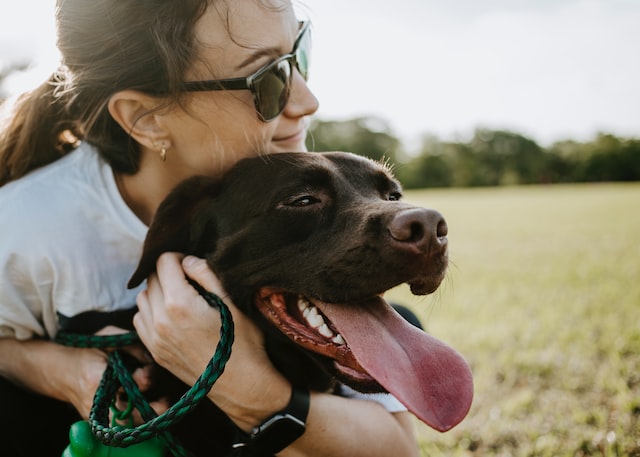Dogs play an important role in a person’s life. They can make their owner happier and feel loved. Owning a dog can also provide several physical and emotional benefits. But some dogs do more than just show affection. The use of service dogs has skyrocketed during the past years because these dogs are trained to perform specific tasks to help individuals with disabilities.
To get a service dog, you first need to know the basics. Note that they’re not emotional support animals or therapy dogs, which aren’t as trained as they are. This article defines service dogs and explains how you can get one.
What Is a Service Dog and What Are These Dogs Used For?
A service dog, according to the Americans with Disabilities Act (ADA), is “a dog that is individually trained to do work or perform tasks for a person with a disability.”
If you have a physical or mental condition that can limit your daily activities, you can be qualified to get a service dog. For example, service dogs can guide people with visual impairments while walking. They can also use signals to warn the deaf or alert people when someone is to have a seizure or cardiac arrest. There are also psychiatric service dogs that assist individuals with mental disorders.
Overall, people with disabilities can be safer with service dogs on their side. And today, different breeds of dogs are trained to do complex tasks to better assist their owners.
How to Qualify for a Service Dog
To qualify for a service dog, you must first have a disability that falls under the ADA’s definition of disability. But don’t worry. There’s a wide range of physical and mental disabilities that may qualify for service dogs. Here are some examples:
- Partial or complete blindness
- partial or complete hearing loss
- Epilepsy
- Autism
- Asthma
- Allergies
- Bipolar Disorder
- Depression or Anxiety
- Post Traumatic Stress Disorder
Get documentation from your doctor to prove that you currently have a condition that may require assistance from an animal. Keep in mind that the dog should be trained to do tasks that specifically relate to your condition.
Steps to Get a Service Dog
Before you decide to get a service dog, you should first consider whether you can take care of an animal or not. Owning a service dog means taking the responsibility to properly feed, clean, and protect them.
Once you’ve considered all the responsibilities of owning a service dog, follow the steps below.
1. Get documentation from a healthcare provider. Your doctor should state that you need a service animal to assist you because of your disability.
2. Get a permit or apply to an organization that provides service dogs. Submit all the necessary requirements and fill out all the application forms. This is to make sure that you have the capability to take care of the dog.
3. Choose a dog breed. Determine which dog breed can follow your lifestyle. The most popular service dog breeds are labrador retrievers, golden retrievers, and german shepherd dogs.
4. Get to know your new friend. Take your time to get comfortable with your service dog. You can regularly take a walk or constantly talk with your dog.
5. Follow-up lessons. Most service dog providers will inform you to occasionally visit their office so your dog can have some follow-up training.
Conclusion
Note that you can’t quickly get a service dog. Training a service dog takes time, especially when you’re training your own dog. This is why some people would rather get a service dog from others who have already trained it.
Read more articles here!
- Dogs Can Sniff Out These 5 Health Problems In Humans
- Service Dogs for OCD: How Can They Help?
- Tips On Training Your Own Service Dog
Do you own an assistance animal? Register your pet today.
The Service Animal Registry of California invites you to have your assistance animal registered in order to designate its status. We also encourage you to take our online classes so you can be fully aware of your rights and gain more knowledge about your support animal.
Finally, we present to you our book entitled, “ASSISTANCE ANIMAL LAWS: LEARN YOUR RIGHTS REGARDING SERVICE ANIMALS, EMOTIONAL SUPPORT ANIMALS, THERAPY PETS, AND OTHER DOGS, CATS, AND ASSISTANCE ANIMALS” to provide you with a complete education on assistance animals.
Purchase your copy of the book by clicking the image below.


